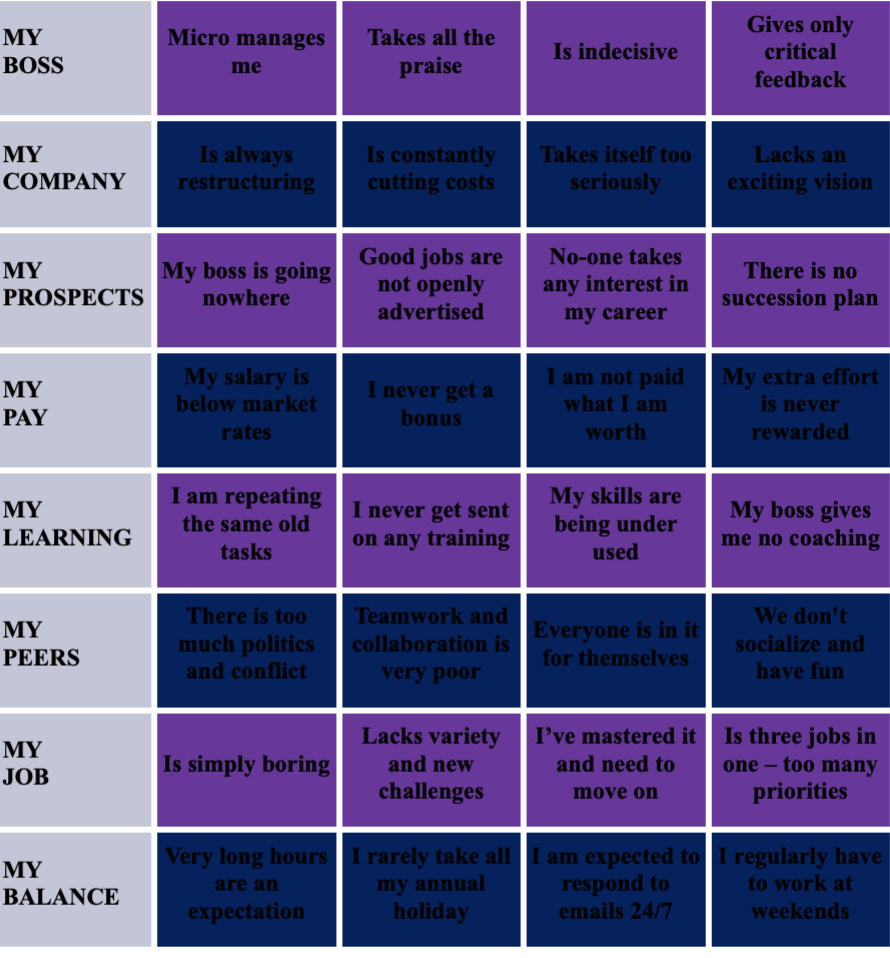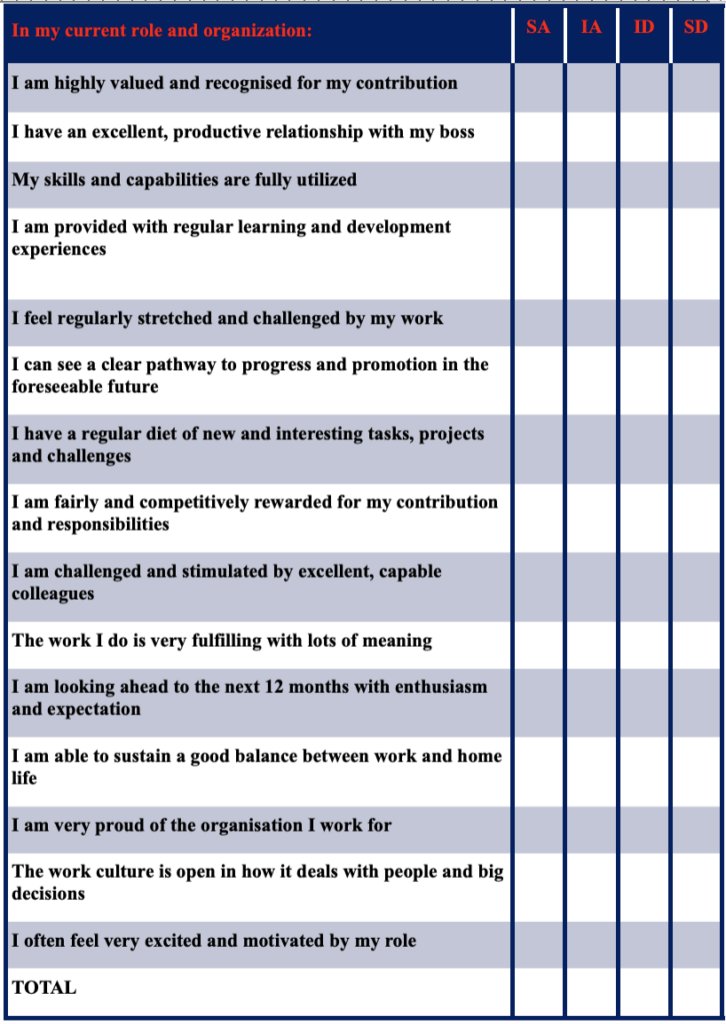
The question I am most frequently asked in my regular daily career coaching conversations with talented individuals all around the world is: Should I stay or should I go?
In this article my aim is to provide some helpful thoughts and tools for evaluating when the time might be right to make such an important career change and when it may be better to wait and gain more benefits and advantages from where you are right now.
Firstly there are some situations where it is simply unavoidable to seek out and secure a new role. If, for whatever reason, your role has been changed and you have been made redundant through restructuring, downsizing or business merger then you may have little option but to look for a new job. Ofcourse, outside these non-invited scenarios, there are a multitude of other reasons why talented and successful individuals might voluntarily contemplate seeking a new role.
Amongst the most common reasons include:
NB: This is often one of the major cited reasons why individuals choose to move on.
It is important to carefully assess these factors and consider whether they are temporary issues that can be addressed or signs of a more systemic problem within your current role.
Ultimately, deciding to seek a new job should be a thoughtful and informed decision based upon your unique circumstances and career aspirations and one that we should never take lightly.
It is often easier to see the grass greener elsewhere, particularly if we are going through a tough time in our current job. Part of us will be naturally cautious of making an ill-considered or knee-jerk change for fear of making a mistake or exchanging current pressures and challenges for just another set of difficulties but with none of our current familiarity.
So how can we know with certainty whether we should stick or twist on the job front?
In many cases our gut instinct will tell us that we may have reached the end of the road with a particular job or organisation.
There is nothing wrong with listening to these inner signals; they will create the fertile ground and motivation to move into action. However, you may also want to rely upon a more rational and logical process to help guide you and identify the current issues of dissatisfaction and most importantly what you might want to look for that is different and better in a new role.
Here’s a very quick and easy tool that might help you to put some logic around your decision whether to stick or twist in your current role:-
BROSNA JOB BINGO – take a few minutes to play Brosna Job Bingo i.e. A simple way of evaluating some of the elements that might be causing you to feel dissatisfied in your current role.
Simply identify/tick the boxes that are true for you right now in your current job.

Based on the number of boxes that you can identify with, this is how you might use the grid to evaluate your situation:
5 boxes or less – your current job is probably not that bad, there are a few things to fix but not sufficient justification for jumping ship just yet
6 to 15 boxes – there are significant parts of your job that are very unfulfilling and unless you can realistically fix these you should start looking for a new role sometime soon
16 to 25 boxes – oh dear, you must really be resenting your job and the time you spend at work – definitely time to get out quickly and find something more worthwhile to do
Over 25 boxes – a severe situation, you probably need some help and coaching to keep up any motivation and you should consider a very urgent job change to preserve your sanity and well being!
Although slightly tongue in cheek, this quick exercise helps you do an initial rough evaluation on the degree of satisfaction (or not) that you derive from your current role.
Below is another, more refined and positively-focused tool that might also help give you a reading about what you most value and like about your current role. Please use this grid to give you an overall picture of your current satisfaction level with your current role and organisation.
For each statement shown please decide which is the truest for you using these criteria
Strongly Agree (SA) Inclined to Agree (IA) Inclined to Disagree (ID) Strongly Disagree (SD)

Add the number of ticks in each column and total them to give you an overall satisfaction picture of your current role.
Unlike the Brosna Bingo earlier, the results from this exercise should give you a further indication of your satisfaction and fulfillment in your current role and organisation.
Clearly, if your score is high in “Strongly Agree” then your current role is providing you with a great many positive benefits. In reverse, if your score is highest in “Strongly Disagree” then your current situation is not a positive one and you should definitely think if you should actively consider new opportunities. If your scores are more in the middle range then you should ask yourself the following questions:
Beyond these simple evaluation tools, perhaps some other factors to balance when thinking about whether the time is right to “stick or twist” includes:
And if, after much thought and evaluation, you reach the important decision that is indeed time to twist and not stick, here are some final thoughts and affirmations to guide you: